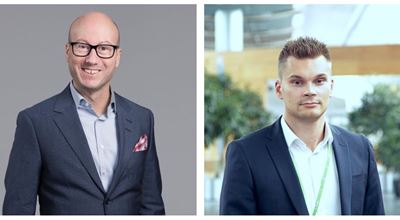Anette Heijnesson Hultén, technical project manager and specialist within Research and Development at Nouryon, has been working with a chlorine dioxide (ClO2)-based NOx reduction (De-NOx) technology for the past few years. Since 2022, Nouryon has been working together with Valmet, a leading global technology provider, to offer the new De-NOx technology to customers in the pulp and paper industry.
During a two-day conference in Uppsala, Sweden, the technical development in the heat and power sector was highlighted and discussed. At the event, Anette, together with Jonas Ståhls from Valmet, talked about NOx reduction in flue gases with a new De-NOx technology and shared their respective experiences regarding the development work, from lab/pilot scale to full-scale De-NOx installations.
Anette and Jonas presented the technical possibilities to reduce the amount of NOx in flue gases from recovery boilers, but also for boilers that are not suitable for selective catalytic reduction (SCR) or selective non-catalytic reduction (SNCR).


